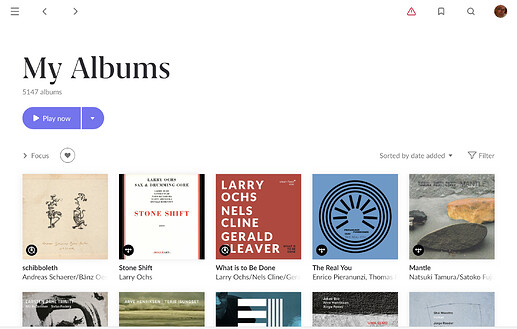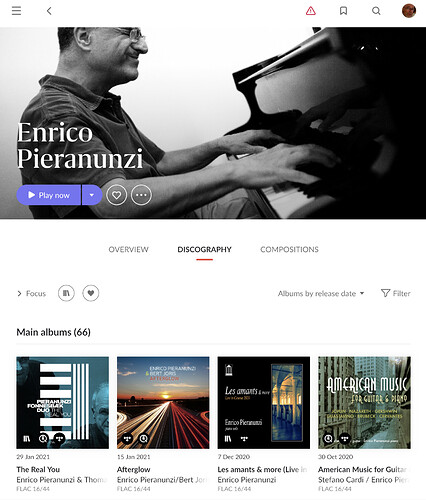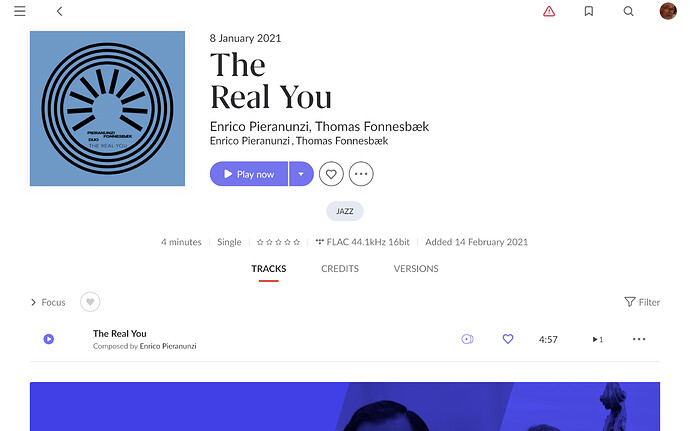I guess what I’m trying to say is that Roon’s business model doesn’t align as a third party re-packaging of a successful streaming service.
We can debate the merits of what makes a streaming service successful as an experience, but the operational costs go down per user as your user base grows. Nothing I’ve read or seen about T/Q indicates they are growing exponentially at all so how many years does a low-revenue generating streaming service even have to retain catalog rights? Innovate their own product? Grow their user base? Return a profit for investors?
Amazon has zero reason to put their lossless streaming content into Roon or any other third party. Why would they? They have their consistent brand across platforms, something Roon has shoved down our throats for years after asking them to adopt iOS functionality they haven’t done or done slowly. Point being, no company wants to minimize brand consistency or lose power to a better interface or product from a third party. The two currently are doing it to expand their reach because they are getting dwarfed by Spotify, Apple, YouTube and Amazon, and because Roon brings them hifi enthusiasts that can help offset their poor regular user revenue with a more expensive offering.
Roon users thinking Amazon will come on board come off as delusional to the reality of the situation. And my suspicion is that they deep down know that Roon has partnered with two streaming services that have little to no chance of long-term survival so a bigger one with possibly infinite staying power would be the obvious best choice.
I like Qoboz’s focus on quality more than Tidal’s haphazard, “We’re the hip-hop and youth music platform competing for new releases” while simultaneously “the platform for wealthy niche users who want the highest quality music!” but the name alone will always make it a drop in the bucket compared to Tidal and Jay-Z’s recognition.
Yet Tidal never broke through and the mere existence of Roon and its 100k users tells you that lossless streaming will never break through to a mass audience. Maybe not “never” but not until US broadband infrastructure catches up, storage prices drop, major labels cede their power and all of the barriers let lossless flow like a river.
I appreciate Tidal and Qoboz for making innovative efforts and a commitment to quality, but no one has shown me or anyone else what a realistic runway is for the 7th or 8th largest streaming platform in the US is, let alone Qoboz who may be barely cracking the top 15. Their entire business was built upon scaled growth and neither will ever have that. So how do they continue through 2025 or 2030?
My hope would be that Roon leverages the experience of working with two different streaming partners to integrate any service willing to open up their platform, but makes the software run as seemlessly as possible regardless of content source.
My fear is you wake up and find out one of them is shutting down. Then another. Where does that leave Roon? What resources would need to be devoted to integrating another service at the expense of other development work? How do you market all of this Valence technology not offered in a personal library if they only work on streaming services?
Maybe I’m selfish as a lifetime subscriber but I’d like Roon stay around as long as possible and be as successful as possible and my inclination is that they will outlast both streaming services because they offer a true market leading delivery technology in homes. The faster Roon implements platform agnostic AI and leverages more of the data we are providing them as users, the less specific streaming services matter. Just like every other industry, there will be consolidation and it won’t be to the favor of minor players like T/Q.


